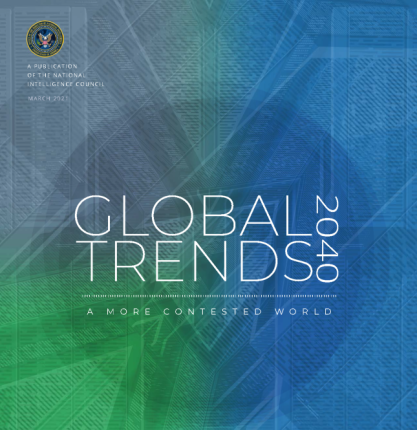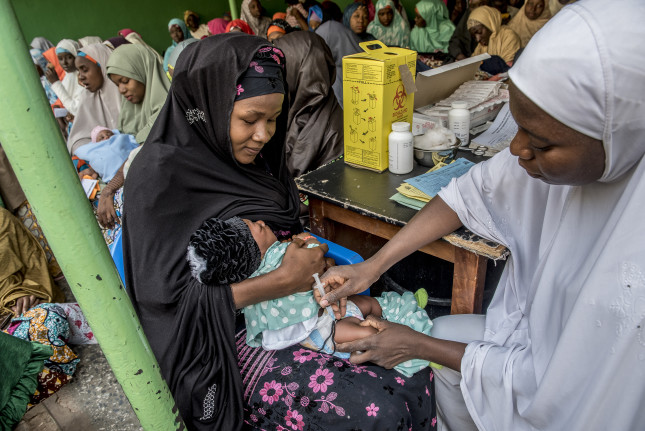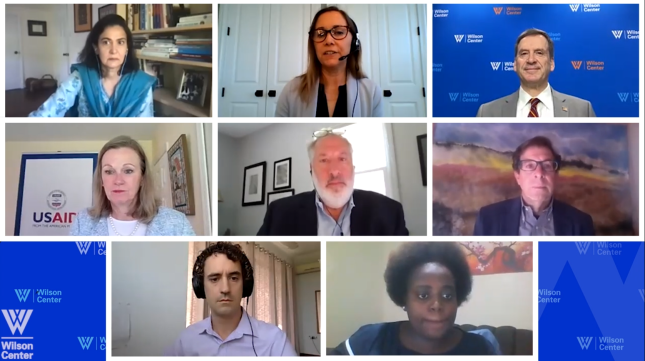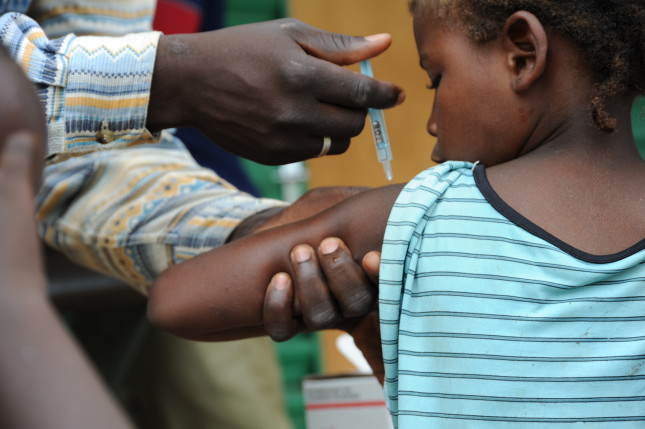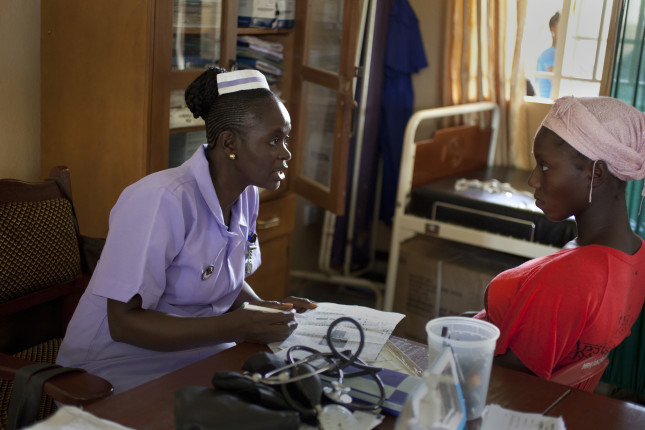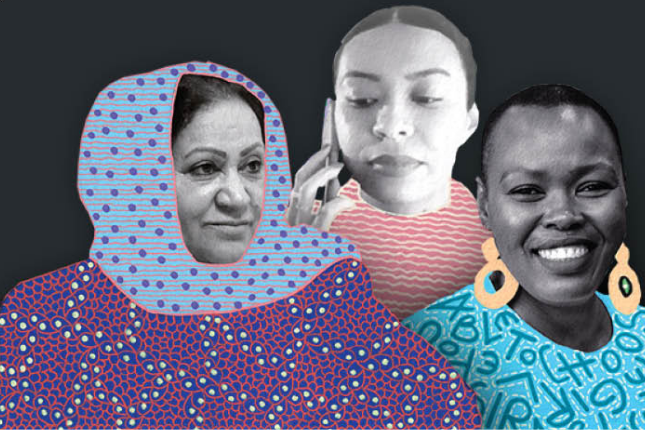-
Most LGBTQ+ Individuals Remain in the “Global Closet”–At Great Cost to Global Health
›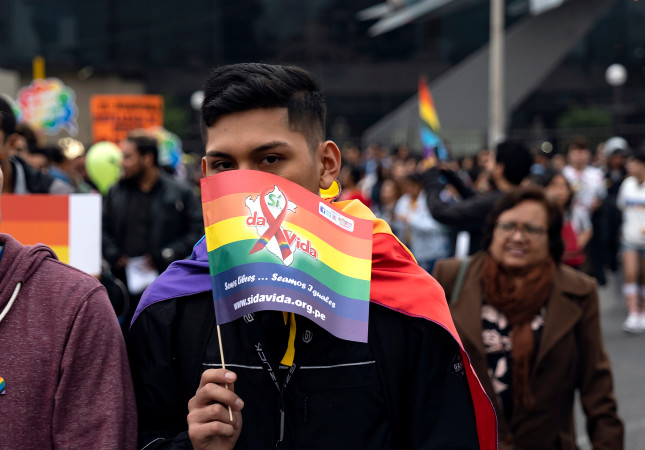
Pride month 2021 is underway, with parades, celebrations, and advocacy movements all over the world. Given the month’s celebratory nature—along with the increasing acceptance of and recent victories for LGBTQ+ * (lesbian, gay, bisexual, transgender, queer or questioning, and others) communities in some countries—it might be easy to assume that most lesbian, gay, and bisexual individuals are “out.” However, according to a study by the Yale School of Public Health, this is far from the case. The vast majority of lesbian, gay, and bisexual individuals remain in the closet, concealing their sexual orientation from “all or most” people in their lives.
-
The NIC’s Global Trends 2040 Report: A Development Outlook
›
The recently released National Intelligence Council’s Global Trends 2040 report, clocking in at over 140 pages, is titled “A More Contested World.” That headline should come as no surprise to development professionals. The report, reviewed by the incoming Director of National Intelligence Avril Haines, before being sent to President Biden and Congress, examines key trends that will likely influence U.S. national security out to 2040. I blogged on the Global Trends Report back in 2015, when it was on the verge of being unveiled at the splashy South-by-Southwest (SXSW) festival in Austin. This year’s public release was much more muted and the overall outlook decidedly more bleak, chaotic, and turbulent, not just from the lingering fallout of a “long tail” COVID-19 pandemic, but from the ominous environmental consequences of climate change on everything from glaciers and rising sea levels, to more frequent and intense tropical storms, and an unprecedented numbers of wildfires, like those seen last year in the Western United States. The NIC report also speaks to the ominous societal changes coming our way, best characterized by a widening chasm between what governments can reliably deliver and what citizens can reasonably expect.
-
Vaccines, Family Planning, and Freedom from Violence: Achieving Equity for All Women and Children
›
“From birth, from almost from cradle to grave, girls have been seen as some sort of baggage,” said Shamsa Suleiman, Project Management Specialist for Gender and Youth at the U.S. Agency for International Development (USAID), Tanzania. Suleiman spoke at a recent Wilson Center event with USAID MOMENTUM Country and Global Leadership about balancing power dynamics to achieve equity for all women and children in maternal, child, and adolescent health, and family planning. Home should be a safe space, said Suleiman. But for many girls, it no longer is. To escape the poverty and pressures at home, including early marriage and other forms of gender-based violence, some girls leave, said Suleiman. “Girls are trying to escape the safe spaces.”
-
A Conversation with Dr. Nahid Toubia: Bodily Autonomy and the 2021 State of World Population Report
›Africa in Transition // Dot-Mom // Friday Podcasts // May 28, 2021 // By Hannah Chosid & Deekshita Ramanarayanan Bodily autonomy is something almost innate in us, and yet also a Eureka moment for many people, says Dr. Nahid Toubia, Director for the Institute of Reproductive Health and Rights in Sudan on this week’s episode of Friday Podcasts. “Every human being really has the right to own their body, to own their decisions, to own their choices regarding their life, their futures, how they want to live, who they want to partner, whether they want to have children or not, what kind of families they want to have,” she says. “So, all of these choices are all wrapped up in this concept of body autonomy.”
Bodily autonomy is something almost innate in us, and yet also a Eureka moment for many people, says Dr. Nahid Toubia, Director for the Institute of Reproductive Health and Rights in Sudan on this week’s episode of Friday Podcasts. “Every human being really has the right to own their body, to own their decisions, to own their choices regarding their life, their futures, how they want to live, who they want to partner, whether they want to have children or not, what kind of families they want to have,” she says. “So, all of these choices are all wrapped up in this concept of body autonomy.” -
50 Years and Billions Spent: Achieving Universal Access to Water, Sanitation, and Hygiene (WASH) Within Reach
›
“Reporting on the progress made, the challenges that remain, and impact of COVID-19 on the WASH sector is crucial,” said Ambassador Mark Green, President, Director, and CEO of the Wilson Center and former USAID Administrator, during his opening remarks at a recent event hosted by the Wilson Center and Circle of Blue to discuss the WASH Within Reach project.
-
COVID-19 Causes Lags in Childhood Vaccinations–“The Time to Catch Up is Now”
›
More than a year after it began, the COVID-19 pandemic continues to disrupt essential health services, including routine childhood immunizations, according to the World Health Organization’s (WHO) second pulse survey. The survey asked countries to report the level of disruption in their jurisdictions to 63 health services during the previous three months. 135 countries and territories from across the six WHO regions responded with data covering October 2020 to February 2021.
-
State of the World’s Midwifery Report 2021: Follow the Data, Invest in Midwives
›
“Every day in every part of the world, midwives save the lives of women and babies and promote the health and well-being of entire communities,” writes UNFPA Executive Director Dr. Natalia Kanem in honor of International Day of the Midwife. “They deserve our respect and gratitude, but that is not enough. Midwives deserve greater investment in their capabilities, and workplaces that empower them and fully acknowledge their skills and contributions.” Investment in midwifery could save millions of lives per year – an estimated 4.3 million annually by 2035.
-
My Body, My Voice, My Choice: Launching UNFPA’s 2021 State of World Population Report
›
“As we’re talking, the bodily autonomy of millions of women and girls around the world is still denied,” said Klaus Simoni Pedersen, Acting Director of the Division of Communications and Strategic Partnerships for the United Nations Population Fund (UNFPA) at the recent U.S. launch event of the 2021 UNFPA State of the World Population report, hosted by the Wilson Center and UNFPA. The report, My Body is My Own: Claiming the Right to Autonomy and Self-Determination, examines the global status of women and girls as reflected in their agency and decision-making power.
Showing posts from category global health.


